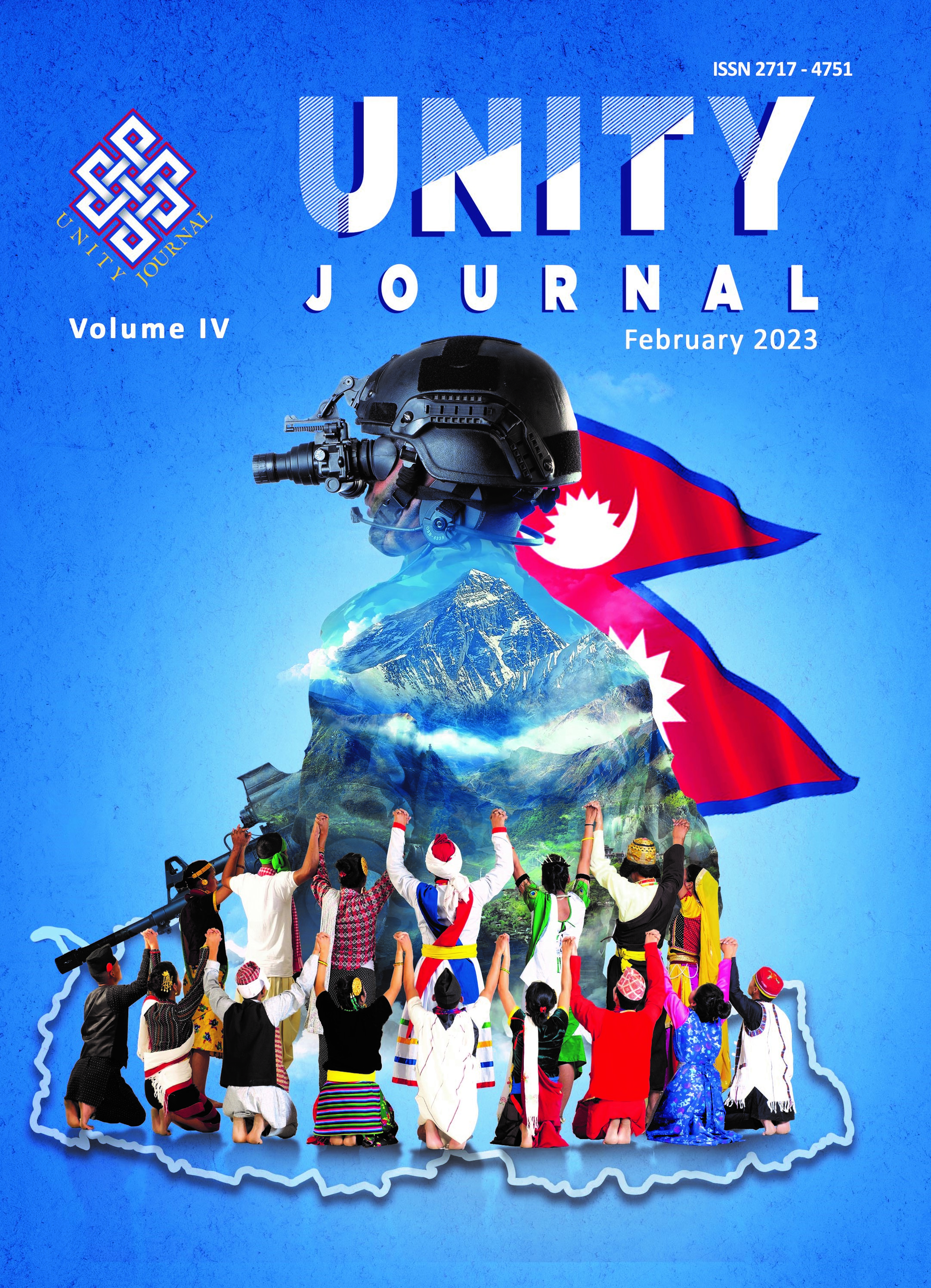The Thriving Strategy for Nepal amidst Triangular Competition of China, India, and the United States
DOI:
https://doi.org/10.3126/unityj.v4i01.52234Keywords:
triangular competition, survival strategy, strategic partnership, psyche, Indo–Pacific strategy, geostrategic position, bilateral relationshipAbstract
Nepal’s geostrategic position between the world’s emerging ‘rival’ powers, China and India in the South Asian Region (SAR) has shaped the Nepali people’s psyche. Our neighbors are competing for their economic and security interests over Nepal. Nepal is also strategically important to the United States (US) because of its geographical proximity to China’s Tibet Autonomous Region (TAR) and increased Chinese footprints in the region, including Nepal. As a result of the relative weakening of America’s dominant position and the gradual shifting of the geopolitical and economic gravity to the Indo–Pacific, the US aims to reshape alliances and partnerships to counterbalance China’s rise in this new geostrategic space. The Sino–Indian silence over ongoing the Russo–Ukraine war, the Sino–US trade war, Indo–China border dispute, a strong China–Pakistan cooperation, a multi–faceted Indo–US strategic partnership, including the former’s dominant role in the Indo–Pacific Strategy (IPS) and Quad Security Dialogue (Quad) to counter the growing significance of China’s Bridge and Road Initiative (BRI), and the BRI vs. the IPS are major developments taking place in the periphery of Nepal. Nepal’s strategic significance has been further enhanced as a result of the US’ efforts to include it in its IPS so that Nepal could be used as a lever in targeting Chinese influence in the region. In an environment of such conflicting interests, immediate neighbors and the US are trying to expand their influence in various forms over Nepal. With this background, this article endeavors to highlight the latest developments in Nepal’s bilateral relationship with these powers, analytically examine the triangular competition with its implications, and forward relevant recommendations for its security and survival by diplomatically balancing these powers and forestalling their undue pressures. The article is subjectively prepared by analytically reviewing the literature on Nepal under the strategic significance of China, India and the US.
Downloads
Downloads
Published
How to Cite
Issue
Section
License
The articles rest within the authority of the Nepali Army. Only with the Nepali Army's prior permission, can any article in whole or in part from this journal shall be reproduced in any form.

